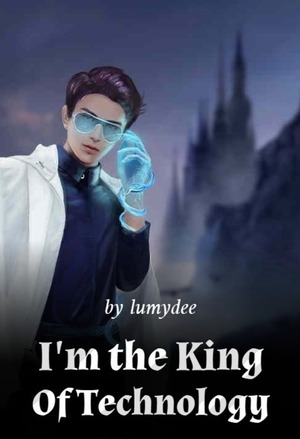Novel Name : The Mech Touch
The Mech Touch Chapter 793 Primitive Threats
It took a bit more than a standard day for the first contact delegation and its escorts to return to camp. Carrying Lieutenant Dise's electrically-fried mech back without damaging it further required a lot of coordination on the part of the mechs that carried the wreck. They had to slow down when they traversed difficult terrain in order to avoid jostling the damaged but restorable frame.
In the meantime, the Vandal and Swordmaiden experts all exchanged their data and observations among themselves and discussed some of the implications. The mutual exchange helped everyone out as everyone possessed a different perspective.
Frankly, Ves didn't play too much of a role this time because the inhabitants of Mulak didn't make use of any mechs at all. Instead, their principal form of defense came in the form of their exobeasts!
With their sacred gods acting as their main line of defense, was there any need for them to develop mechs? They could just grow a giant beast and proclaim it as a god to convince the dumb creature to defend their cities. It was a lot more convenient to maintain a tamed exobeast than a mech because the latter needed extensive logistical support in the long term.
"The entire city is geared first and foremost on supporting their pantheon of gods." Ves explained his thoughts. "With the amount of food they must be consuming at set intervals, the city can barely spare any infrastructure on anything big like mechs, shuttles or tanks. Research and development, production and maintenance all require hundreds of scientists, engineers, technicians, machinists and more to get an entire industry sector up and running. Nothing we've seen so far of Mulak suggests that the city possesses any significant industry."
"Mulak was never an industrial city in the first place." Chief Dakkon concurred. "According to the abbreviated history told by Pirisa, Mulak used to be the center of a resource harvesting operation. Ores and raw materials flowed to the city before being shipped elsewhere. If any cities have managed to retain some semblance of technology, it should be at those settlements geared towards industry."
All of this sounded interesting, and implied a means for the Flagrant Swordmaidens to come to some sort of mutually beneficial agreement with the locals.
Their mistaken impression that the visitors worshipped some sort of smithing or crafting god already laid down the road to further cooperation. Chief Dakkon already developed hundreds of potential suggestions to improve the defenses and the standard of living of Mulak.
"The city is an ancient relic." Dakkon said as he showed off projections of various images that his suit had taken. "Look at these portions. The metal sheets that are covering up these sections used to be occupied by various machines and electrical devices. They all wore down over hundreds or thousands of years due to lack of maintenance, so the city isn't functioning as it used to. I can easily restore some of the functionality of these machines with some basic supplies and the help of a crew of technicians."
"I'll take your suggestions under advisement." Captain Byrd replied as she had remained in thought throughout the journey back. "Mind you, we want to be as efficient as possible in our trades. Seeing that the cities are essentially independent city-states with no apparent contact with each other, it's fine for us to trade for basic knowledge. It doesn't cost us anything to hand over some data pads containing various manuals and technical specifications to every city open for trade."
Though they hadn't seen much of the city, what they already observed from the main boulevard that ran through the middle of the settlement already showed that the inhabitants lived in their own self-contained world.
The blessed people that lived in the cities never contemplated traveling to another city. The potential trade benefits simply didn't measure up to the massive risk of predation along the way.
Pirisa and the city officials already named the three most prominent threats.
The wildlings consisting of feral tribes of genetically engineered dwarves felt right at home under heavy gravity conditions.
It was a question how worse off their society had degenerated over the years of divergence. If the blessed people resembled a society that lived in medieval times, then the cursed people living in the wilds had likely gone back to the era of tribes!
In fact, the dwarves didn't sound very intimidating at all. The second threat that posed a potential danger to the ground forces was the offspring of the gods in the wild. As small and fast breeders, practically all of godlings perished before they reached their full potential. Still, different species and subraces sometimes traveled by the thousands, and they could easily overwhelm a city if it didn't put up a serious defense.
According to the locals, the godlings were a scourge upon the lands, preying on the native herbivores and the wildlings alike, sometimes to extinction. Their hordes constantly roamed across the planet for that reason. This also allowed newer populations of animals and wildlings to settle on the emptied lands.
This warped ecological cycle made it very unsafe for anything less than a sacred god to venture far outside a city.
Yet even a sacred god could be felled in the wilds. The culprits often comprised of the third and most serious threat someone could face on the planet, which were the wild gods.
Neither Ves nor anyone else could figure out from Pirisa's description whether the wild gods possessed any sentience. They also lacked the crystals implanted on their bodies shortly after their birth that enabled them to call upon an energy tornado to siphon away some higher-dimensional energy and temporarily store them in the reservoirs for later use.
This distinguished wild gods from their more civilized countersparts. Nonetheless, even a sacred god could be brought down by superior numbers that attempted to exhaust the grand exobeast of its godly powers.
Still, if the Flagrant Swordmaidens ever encountered packs of wild gods in their upcoming trek to the Starlight Megalodon, then they could easily take care of the big lumbering beasts by bombarding it with a bevy of lasers from a distance.
Even if the wild gods possessed the ability to summon an energy field, their mechs could quickly overwhelm its defenses after it endured a couple of hundred laser beams!
The only threat that truly concerned the Flagrant Swordmaidens was if a wild god acquired a wildling beast rider. The combination of raw animal intelligence with the sentient mind of a dwarf could accomplish a lot of awful things!
"Keep in mind that what Pirisa and her people has told us is colored by their perspectives." Captain Byrd cautioned as the experts tried to figure out how much of a threat a wild god posed when directed by a wildling. "She painted her own kind and us as blessed people while calling those who roam outside the cities as cursed people. Perhaps to the wildlings, they are true blessed subrace of humanity while the city folk are relics of a past age who won't be able to thrive on this planet after all of their antigrav modules slowly break down."
Chief Dakkon looked up at that. "Ma'am, I don't believe that the gravity in Mulak is being moderated by conventional antigrav modules. The sensor readings that I've managed to gather failed to spot any of the characteristic emissions released by antigrav modules. Something else is maintaining a stable antigrav field over the entire city, and it might be based off something else than technology."
"Do you have any clue, chief?"
"None so far, ma'am. However, I do want to state that if their technological mastery has fallen so far behind that they're unable to develop something like a steam engine, then it is simply impossible that they can keep an antigrav module up and running for more than a couple of decades since their last round of servicing. Considering how much time has passed since the founding of the city and which I've confirmed by dating some of the samples of its structures, the locals must have developed a non-technological alternative to maintaining a stable gravity."
"Could it be the sacred gods and those strange crystals embedded into their hides?" Ves suggested. Everyone gained a fascination for the crystals because they possessed the rare ability to interact with the astral winds. "They effectively keep their beast riders from getting crushed by the planet's gravity."
"Possible, but I can't say for sure. I doubt we can get our hands on those crystals so easy. The sacred gods seem to prize them a lot, even harvesting them from the carcasses of others of their species."
The speculation about the crystals ran for hours as everyone pitched in their theories. Chief Dakkon had the most to say of all, but even he only scratched the surface of its wonders. Despite the raft of raw sensor data their mechs and transports had captured, they had come no closer to understanding their workings from before!
Nonetheless, everyone already recognized their potential uses. Obtaining the crystals or achieving an understanding of their workings because the highest priorities of the Flagrant Swordmaidens!
If they ever unlocked the secrets and gained the ability to call down their own energy tornado and convert the higher-dimensional energy into electrical energy, then perhaps the ground forces would no longer have to worry about their energy budgets!
Still, the locals wouldn't give up such a prized advantage easily. Captain Byrd sighed in disappointment. "Captain Clarissa and I broached the topic of trading for one of those crystals. Pirisa refused to entertain such possibilities no matter how many carrots we dangled in front of her head. These crystals are extremely rare and even the sacred gods of Mulak can't obtain them in large numbers. Unless we offer something extremely substantial, they would never dream of trading away a valuable crystal."
If the Flagrant Swordmaidens really wanted to, they could come up with something extremely precious to exchange for one of those so-called god crystal. Right now though, the Flagrant Swordmaidens weren't interested in empowering the locals too much.
By the time the delegation returned to camp, the news of their experiences spread throughout the camp like wildfire.
Sacred gods! Wildlings! Godlings! And the dreaded wild gods! All of the tales the Vandals and the Swordmaidens released without reservations all came as a massive shock.
Tales of exobeasts interfacing with their chosen beast riders became an especially interesting story to those that had never witnessed such a thing. The Swordmaidens who value strength and often hunted exobeasts for sport became instantly enamored by such a possibilty! Some of the more aggressive Swordmaidens couldn't wait to run off into the wilds to find an isolated wild god to tame!
When Ves returned to one of the workshops of erected by the Vandals, Ketis instantly arrived and started to bug him for stories.
"C'mon Ves! Tell me more about the big gods and their beast riders! Are there any gods with wings? What are the powers of the other exobeasts? Were all of them bigger than a heavy mech or are you just pulling my leg?"
Ves chuckled a bit. "If you're so curious about how they look like and how they fight, you can help me analyze the footage and sensor readings we've captured."
He pushed her to a spare terminal and granted her access to a raft of raw footage and sensor data. "Just take a look at them and try and figure out what is going on. Any insights you can figure out will help us understand the sacred god and possibly even allow us to replicate the feat, though I don't really see why we need to. Our mechs are more than enough to defend our expedition."
"You don't know anything! Don't you see how cool it is to tame and ride those big majestic beasts? I wonder if we'll be allowed to take them aboard our ships after we complete our mission! It would be so great to add them to our roster so we can field the equivalent of a heavy mech in our future landbound deployments!"
Ves tried to imagine the Swordmaidens replacing some of their mechs with sacred gods and couldn't quite process the absurdity!
In the meantime, the Vandal and Swordmaiden experts all exchanged their data and observations among themselves and discussed some of the implications. The mutual exchange helped everyone out as everyone possessed a different perspective.
Frankly, Ves didn't play too much of a role this time because the inhabitants of Mulak didn't make use of any mechs at all. Instead, their principal form of defense came in the form of their exobeasts!
With their sacred gods acting as their main line of defense, was there any need for them to develop mechs? They could just grow a giant beast and proclaim it as a god to convince the dumb creature to defend their cities. It was a lot more convenient to maintain a tamed exobeast than a mech because the latter needed extensive logistical support in the long term.
"The entire city is geared first and foremost on supporting their pantheon of gods." Ves explained his thoughts. "With the amount of food they must be consuming at set intervals, the city can barely spare any infrastructure on anything big like mechs, shuttles or tanks. Research and development, production and maintenance all require hundreds of scientists, engineers, technicians, machinists and more to get an entire industry sector up and running. Nothing we've seen so far of Mulak suggests that the city possesses any significant industry."
"Mulak was never an industrial city in the first place." Chief Dakkon concurred. "According to the abbreviated history told by Pirisa, Mulak used to be the center of a resource harvesting operation. Ores and raw materials flowed to the city before being shipped elsewhere. If any cities have managed to retain some semblance of technology, it should be at those settlements geared towards industry."
All of this sounded interesting, and implied a means for the Flagrant Swordmaidens to come to some sort of mutually beneficial agreement with the locals.
Their mistaken impression that the visitors worshipped some sort of smithing or crafting god already laid down the road to further cooperation. Chief Dakkon already developed hundreds of potential suggestions to improve the defenses and the standard of living of Mulak.
"The city is an ancient relic." Dakkon said as he showed off projections of various images that his suit had taken. "Look at these portions. The metal sheets that are covering up these sections used to be occupied by various machines and electrical devices. They all wore down over hundreds or thousands of years due to lack of maintenance, so the city isn't functioning as it used to. I can easily restore some of the functionality of these machines with some basic supplies and the help of a crew of technicians."
"I'll take your suggestions under advisement." Captain Byrd replied as she had remained in thought throughout the journey back. "Mind you, we want to be as efficient as possible in our trades. Seeing that the cities are essentially independent city-states with no apparent contact with each other, it's fine for us to trade for basic knowledge. It doesn't cost us anything to hand over some data pads containing various manuals and technical specifications to every city open for trade."
Though they hadn't seen much of the city, what they already observed from the main boulevard that ran through the middle of the settlement already showed that the inhabitants lived in their own self-contained world.
The blessed people that lived in the cities never contemplated traveling to another city. The potential trade benefits simply didn't measure up to the massive risk of predation along the way.
Pirisa and the city officials already named the three most prominent threats.
The wildlings consisting of feral tribes of genetically engineered dwarves felt right at home under heavy gravity conditions.
It was a question how worse off their society had degenerated over the years of divergence. If the blessed people resembled a society that lived in medieval times, then the cursed people living in the wilds had likely gone back to the era of tribes!
In fact, the dwarves didn't sound very intimidating at all. The second threat that posed a potential danger to the ground forces was the offspring of the gods in the wild. As small and fast breeders, practically all of godlings perished before they reached their full potential. Still, different species and subraces sometimes traveled by the thousands, and they could easily overwhelm a city if it didn't put up a serious defense.
According to the locals, the godlings were a scourge upon the lands, preying on the native herbivores and the wildlings alike, sometimes to extinction. Their hordes constantly roamed across the planet for that reason. This also allowed newer populations of animals and wildlings to settle on the emptied lands.
This warped ecological cycle made it very unsafe for anything less than a sacred god to venture far outside a city.
Yet even a sacred god could be felled in the wilds. The culprits often comprised of the third and most serious threat someone could face on the planet, which were the wild gods.
Neither Ves nor anyone else could figure out from Pirisa's description whether the wild gods possessed any sentience. They also lacked the crystals implanted on their bodies shortly after their birth that enabled them to call upon an energy tornado to siphon away some higher-dimensional energy and temporarily store them in the reservoirs for later use.
This distinguished wild gods from their more civilized countersparts. Nonetheless, even a sacred god could be brought down by superior numbers that attempted to exhaust the grand exobeast of its godly powers.
Still, if the Flagrant Swordmaidens ever encountered packs of wild gods in their upcoming trek to the Starlight Megalodon, then they could easily take care of the big lumbering beasts by bombarding it with a bevy of lasers from a distance.
Even if the wild gods possessed the ability to summon an energy field, their mechs could quickly overwhelm its defenses after it endured a couple of hundred laser beams!
The only threat that truly concerned the Flagrant Swordmaidens was if a wild god acquired a wildling beast rider. The combination of raw animal intelligence with the sentient mind of a dwarf could accomplish a lot of awful things!
"Keep in mind that what Pirisa and her people has told us is colored by their perspectives." Captain Byrd cautioned as the experts tried to figure out how much of a threat a wild god posed when directed by a wildling. "She painted her own kind and us as blessed people while calling those who roam outside the cities as cursed people. Perhaps to the wildlings, they are true blessed subrace of humanity while the city folk are relics of a past age who won't be able to thrive on this planet after all of their antigrav modules slowly break down."
Chief Dakkon looked up at that. "Ma'am, I don't believe that the gravity in Mulak is being moderated by conventional antigrav modules. The sensor readings that I've managed to gather failed to spot any of the characteristic emissions released by antigrav modules. Something else is maintaining a stable antigrav field over the entire city, and it might be based off something else than technology."
"Do you have any clue, chief?"
"None so far, ma'am. However, I do want to state that if their technological mastery has fallen so far behind that they're unable to develop something like a steam engine, then it is simply impossible that they can keep an antigrav module up and running for more than a couple of decades since their last round of servicing. Considering how much time has passed since the founding of the city and which I've confirmed by dating some of the samples of its structures, the locals must have developed a non-technological alternative to maintaining a stable gravity."
"Could it be the sacred gods and those strange crystals embedded into their hides?" Ves suggested. Everyone gained a fascination for the crystals because they possessed the rare ability to interact with the astral winds. "They effectively keep their beast riders from getting crushed by the planet's gravity."
"Possible, but I can't say for sure. I doubt we can get our hands on those crystals so easy. The sacred gods seem to prize them a lot, even harvesting them from the carcasses of others of their species."
The speculation about the crystals ran for hours as everyone pitched in their theories. Chief Dakkon had the most to say of all, but even he only scratched the surface of its wonders. Despite the raft of raw sensor data their mechs and transports had captured, they had come no closer to understanding their workings from before!
Nonetheless, everyone already recognized their potential uses. Obtaining the crystals or achieving an understanding of their workings because the highest priorities of the Flagrant Swordmaidens!
If they ever unlocked the secrets and gained the ability to call down their own energy tornado and convert the higher-dimensional energy into electrical energy, then perhaps the ground forces would no longer have to worry about their energy budgets!
Still, the locals wouldn't give up such a prized advantage easily. Captain Byrd sighed in disappointment. "Captain Clarissa and I broached the topic of trading for one of those crystals. Pirisa refused to entertain such possibilities no matter how many carrots we dangled in front of her head. These crystals are extremely rare and even the sacred gods of Mulak can't obtain them in large numbers. Unless we offer something extremely substantial, they would never dream of trading away a valuable crystal."
If the Flagrant Swordmaidens really wanted to, they could come up with something extremely precious to exchange for one of those so-called god crystal. Right now though, the Flagrant Swordmaidens weren't interested in empowering the locals too much.
By the time the delegation returned to camp, the news of their experiences spread throughout the camp like wildfire.
Sacred gods! Wildlings! Godlings! And the dreaded wild gods! All of the tales the Vandals and the Swordmaidens released without reservations all came as a massive shock.
Tales of exobeasts interfacing with their chosen beast riders became an especially interesting story to those that had never witnessed such a thing. The Swordmaidens who value strength and often hunted exobeasts for sport became instantly enamored by such a possibilty! Some of the more aggressive Swordmaidens couldn't wait to run off into the wilds to find an isolated wild god to tame!
When Ves returned to one of the workshops of erected by the Vandals, Ketis instantly arrived and started to bug him for stories.
"C'mon Ves! Tell me more about the big gods and their beast riders! Are there any gods with wings? What are the powers of the other exobeasts? Were all of them bigger than a heavy mech or are you just pulling my leg?"
Ves chuckled a bit. "If you're so curious about how they look like and how they fight, you can help me analyze the footage and sensor readings we've captured."
He pushed her to a spare terminal and granted her access to a raft of raw footage and sensor data. "Just take a look at them and try and figure out what is going on. Any insights you can figure out will help us understand the sacred god and possibly even allow us to replicate the feat, though I don't really see why we need to. Our mechs are more than enough to defend our expedition."
"You don't know anything! Don't you see how cool it is to tame and ride those big majestic beasts? I wonder if we'll be allowed to take them aboard our ships after we complete our mission! It would be so great to add them to our roster so we can field the equivalent of a heavy mech in our future landbound deployments!"
Ves tried to imagine the Swordmaidens replacing some of their mechs with sacred gods and couldn't quite process the absurdity!
Rankings

To Cure the Playboy
Hailey Allen
Read To Cure the Playboy by Hailey Allen. Genre: Chinese novels. Read the full novel online for free hereRecovering from
Love Has its Will by Selena Lewis
Selena Lewis
Read Love Has its Will by Selena Lewis by Selena Lewis. Genre: Chinese novels. Read the full novel online for free hereT
World Teacher – Other World Style Education & Agent
Neko Kouichi
A man who was once called the world strongest agent ended up becoming a teacher after his retirement to train the new ge
My Entire Class Was Summoned to Another World except for Me
サザンテラス
A god of a different world had abruptly appeared in my classroom and semi-forcibly summoned the entire class to his worl
Undefeated God of War
方想
Youth, is meant to be used to shed sweat under the sun!Youth, is to continuously engage in battles, and secure the win!
I Stayed At Home For A Century, When I Emerged I Was Invincible
Halfway Breeze
Chu Xuan transmigrated to a fantasy world and became the young master of a powerful family. He was rebuked for misbehavi
I'm the King Of Technology
Lumydee
Chu Yi dies in a car crash and becomes Landon Barn, the illegitimate son of king Barn, ruler of Arcadina. Because his mo
Kiss Me Goodnight, Mrs. CEO!
黛蜜儿
In the middle of the night, looking at the woman in his embrace, he smiled devilishly, “With your discontentment, do y
A Man Like None Other
Unknown
Read A Man Like None Other by . Genre: Chinese novels. Read the full novel online for free here.Jared Chance seethes wit
One Useless Rebirth
不会下棋
He Bai won the lottery, became rich, and reached the pinnacle of life. Then, he inadvertently took a picture of the Film